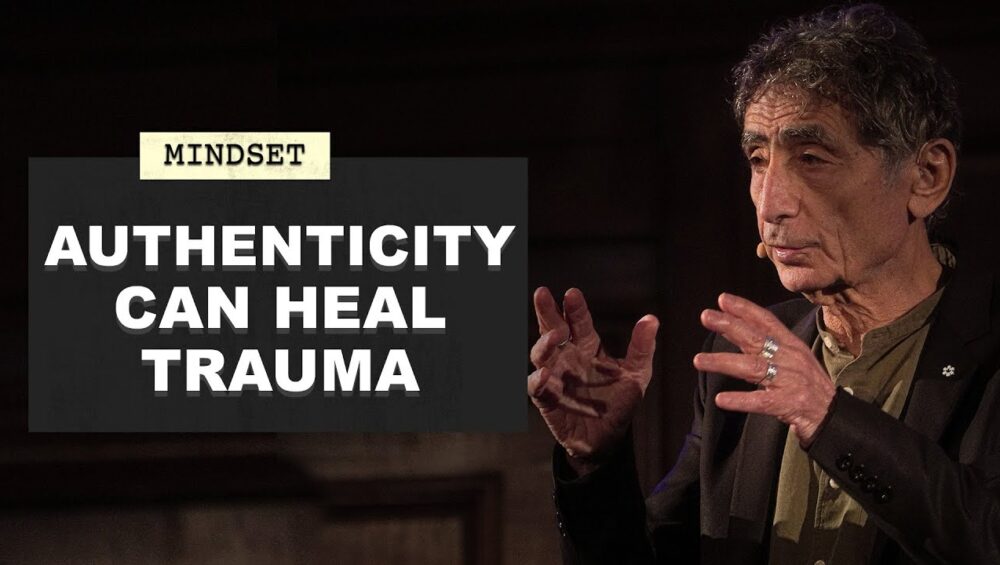Addiction is often misunderstood as a problem with alcohol or drugs, but in reality, addiction is largely about a lack of connection — a lack of connection to others, to meaning, to hope — and perhaps most importantly, to yourself.
For many people, the path out of addiction, such as alcohol abuse, isn’t just about saying “no” to a destructive habit. It’s about saying “yes” to something deeper. Something real. It’s about rediscovering the person you were before the pain, before the numbness, before the survival strategies — before the mask.
That “yes” is authenticity.
What is Authenticity?
Authenticity means living in alignment with who you truly are — your values, your feelings, your truth. Something wants us to be in alignment and that is why other’s will tell us if we are not. If we refuse to listen, the pain will only increase. But if we instead want to heal, we must listen and find back our authentic selves through re-alignment.
Authenticity is also about facing the world without pretending, without hiding behind roles or expectations. It doesn’t mean you have to be perfect or say everything that comes to mind. It means being honest — with yourself and with others. Making decisions that reflect your inner self, not the version of you shaped by fear, trauma, or adaptation.
And that is exactly where the healing power of authenticity lies.
Alcohol Abuse and the False Self
Alcohol abuse is often rooted in a pattern of self-abandonment. Many people, at some point, begin to distance themselves from their true selves — perhaps to fit in, to survive betrayal, or to avoid pain. The more you suppress, the harder it becomes to feel who you really are. And the greater that inner distance grows, the more tempting it becomes to seek peace or relief from the outside — even if it’s only temporary.
Alcohol, drugs, behaviors, and habits can become ways to numb the inner chaos that comes with living a life that doesn’t feel like your own. And the longer it goes on, the more blurred the image becomes of who you were before the addiction.
The Role of Authenticity in Healing
This is where authenticity becomes transformational. Healing isn’t just about removing something — it’s about reclaiming something. It’s about letting go of what’s not you and coming home to who you are. Addiction takes us out of alignment, but bringing back alignment will make the addiction go away because our authentic selves are not our addiction.
Here’s how authenticity supports the journey out of addiction:
1. Brings Well-being
Authenticity first and foremost brings well-being. When you find yourself — instead of feeling lost — it gives you an inner peace that feels more comforting than escaping or running away. This is how you begin to take back control of yourself and your life, because you feel at home in your own body.
2. Rebuilds Self-Respect and Self-Worth
When you start speaking your truth, setting boundaries, and acting in line with your values, you rebuild trust in yourself. That trust becomes the foundation for lasting change, giving you the strength to resist the temptations and challenges you’ll meet on your new path.
3. Creates Genuine Connections
Addiction thrives in isolation, especially in a society that often looks down on the disease. Authenticity creates space for real relationships — where you are seen, accepted, and supported for who you are. And these new connections become a cornerstone of long-term recovery.
4. Heals Shame
Shame — the feeling of being wrong, unlovable, or broken — is a powerful force behind addiction. Authenticity challenges that lie. When you show yourself and are met with acceptance (from yourself and others), shame loses its grip, and you become free to be yourself in the present — not defined by your past.
5. Empowers You to Act
When you live authentically, you don’t react automatically — you choose. You become more aware of your needs and triggers and learn to make decisions that support your healing. The more you experience that you have control over your choices, the easier it becomes to walk your new path without addiction.
6. Fulfills Your Real Needs
Addiction often tries to meet deeply human needs — for comfort, peace, safety. Authenticity helps you meet those needs in healthy and sustainable ways: through creativity, honest conversations, self-care, and connection — not as luxuries, but as necessities.
A Journey Home to Yourself
The path out of addiction is, at its core, a journey home. To the person you’ve always been underneath everything else. The addiction may have blurred your vision, but it hasn’t erased you.
Authenticity isn’t just a part of the healing journey — it is the healing journey. That’s where you begin to heal. That’s where your strength grows. That’s where life starts to make sense again.
Because when you live as your true self, you no longer need to escape your life.
You begin to create a life you actually want to be in. You can begin today, here at Authentisk, with one of our courses.
Be real. Be brave. Be yourself. You are worth coming home to.
Read more about how authenticity can heal trauma and addiction here.






